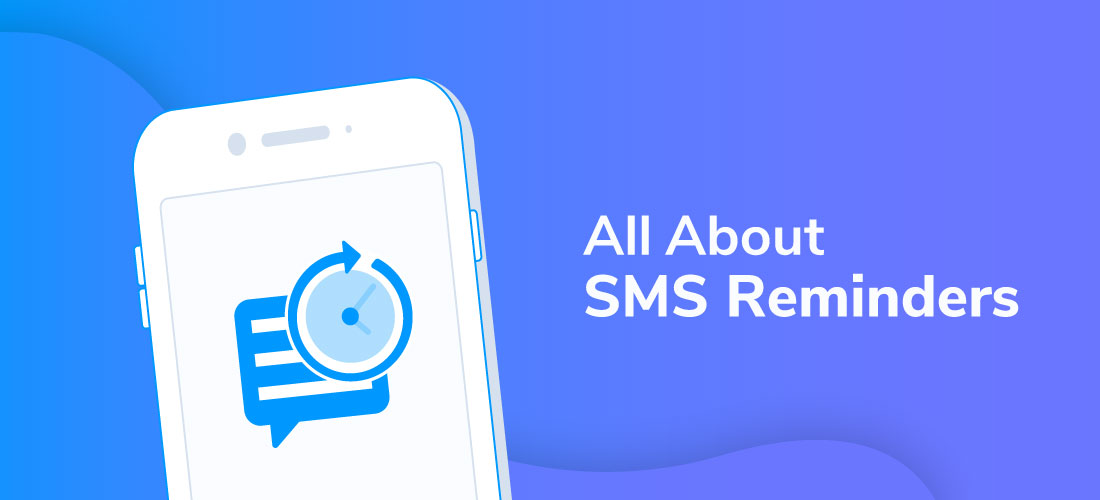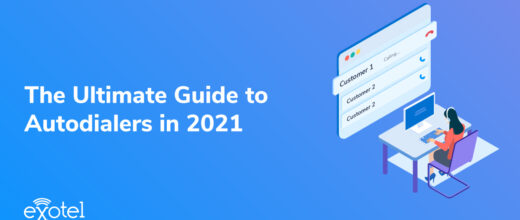Healthcare is one of the fastest growing industries in the world. The US is spending almost $3 trillion on the industry’s growth and it is estimated to consume nearly 18% of its economy. Indonesia is growing at CAGR of 16.5% to almost 22.6% and is expected to hit $280 billion by 2020. Let’s talk about how cloud communication in healthcare has made an impact on customer relationships.
The unending growth of the healthcare industry
The expanse of the industry is owed to technological advancements and the increasing consumer demand.

But with the increasing consumer demand, there comes a need for effective communication. In healthcare, keeping the patient in the loop at all times is necessary for a tension-free experience in even the hardest of times. It keeps the institution, caregiver and the patient at ease.
Now as the number of healthcare consumers increases on a day to day basis, the conventional hospital calling systems are just not enough for clinics and nursing homes. That’s where cloud communication in healthcare comes into the picture.
The communication challenges for the healthcare stakeholders
Hospitals
- Tracking customer conversation: There are a number of patients who call in with queries and most healthcare call centers don’t have a way to track their conversation with the executives.
- Monitoring customer experience: Due to lack of conversion tracking, healthcare setups are not able to monitor their customer experience. There is a lot of forged data that results in a bad reputation for the hospital.
- Measuring performance: Most medical call centers do not have a system to track the performance of the agents.
- Managing outbound campaigns: Many health care centers are running campaigns for blood donation, regular check-ups etc., but managing a large database of customers is a challenge for them.
Patients
- Making appointments: Even though there are multiple apps available, it is always a challenge for most patients to book an appointment in a time slot that suits them the best.
- Tracking appointments: In a lot of cases, patients are not notified or notified late of a canceled or postponed the appointment. This leads to distress and a bad regard for the doctors, irrespective of the situation.
- Sending alerts: Most health care centers need to manually call their patients for their next scheduled appointment or to remind them of a regular checkup. Since it is manual, there are chances that these alerts don’t reach the patient on time.
Service providers (Diagnostic centers and pharmacies)
- Managing distributed centers: When spreading across multiple cities, it becomes challenging to manage customer communication across all the centers. It is equally difficult to monitor the performance of each.
- CRM integration: Most diagnostic centers and pharmacies don’t have a CRM integration in place or have one with limited functionality. This leads to losing patient data and track of the communication last made.
Cloud communication in healthcare: How it helps
1. Easy patient (customer) support
Communication solution for healthcare is of prime importance. It needs to be as easy as possible for a patient to reach out to a hospital phone system. Embracing cloud communication in healthcare sector enables you to create a single number for all your customer queries with automated IVR guidance.
A smart routing system is then used to transfer calls to the right agent, based on a query. You can also transfer calls to the requested doctor or healthcare department from the system.

2. Automated service reminders
A lot of patients need to be reminded of their next appointment – especially new parents and the elderly. Instead of having to manually call or message them, you can set-up automated call for each one and also send SMS reminders around the same time. This can be easily done through a call center software for healthcare, available through cloud telephony.
This will not just reduce patient no-shows, but also help you establish a reputation for being a healthcare center that truly cares.

3. Automated feedback systems
For a healthcare center, it is important to maintain a good relationship with patients. Instilling a sense of belonging to the patient will prevent him from exploring other doctors or healthcare deals in the market. This is where obtaining first-hand feedback from your patients helps.
With cloud communication in healthcare, it is easy to get feedback from the patients after every visit. You can set up an automated campaign that uses calls and SMS to collect feedback from your patients, and stores them categorically on your dashboard.
4. Updated patient records
A typical healthcare center is also responsible for keeping track of a patient’s progress and medication on an ongoing basis. This includes taking continuous note of the medications prescribed, the tests conducted, their results and the progress shown by the patient. Doing so manually will not just increase the chances of an error, but also make it tedious for the agents.
Cloud telephony in healthcare enables easy integration with healthcare information management systems (HIMS) to keep your patient records updated, with every interaction made. It makes it easy for agents to have meaningful conversations with the patients every time.
5. Automated outbound reminder campaigns
It is highly possible that a patient forgets submitting his samples, collecting his reports or even the appointment they booked a week back. In this case, the patient might show up late or not turn up at all and the best way to prevent this is by sending a quick reminder.
By adopting cloud communication for hospitals/clinics, you can set-up an automated reminder call to the patient just 30 minutes before the appointment time. This gives them the buffer to get ready for the same or let you know if they need to cancel it, so you can offer the slot to another customer. Same can be the case for sample submission and report collection, where the patient can be sent a quick reminder.

6. Safeguarding customer data
Patients expect all their data to remain safe and confidential. They are generally not comfortable with all their information being available to even the representatives of the healthcare center. That’s why they need an efficient health communication solution. Exploring cloud communication in healthcare sector enables you to connect your technicians to your patients, without revealing their contact information.
When you route calls via Exotel, the only information available to the technician is the last conversation with the patient. This plays a big role in boosting the customer’s confidence in your healthcare center.
Getting started with cloud communication in healthcare
The patient is your customer and when we talk about the experience you need to offer to your customer, the rules remain the same. A happy customer remains loyal to your brand, irrespective of the deals available to him. This customer is then also more likely to recommend your services to his friends and family, expanding your customer base without an added acquisition cost.

The first step to building a loyal community of customers? Starting a conversation on time.
The accessibility of the cloud telephony software is not just limited to large-scale healthcare providers. In fact, small and mid-size clinics, labs and individual doctors can also use the solution to power their healthcare communication.
Exotel’s cloud telephony solution is highly scalable and can be incorporated into the existing systems in no time. It’s time to give your customer engagement the boost it needs!




 +91-8088919888
+91-8088919888 +1-(718) 354-8866
+1-(718) 354-8866 +61-2-8073-0559
+61-2-8073-0559 +62-215-098-4960
+62-215-098-4960 +60-3-2771-2799
+60-3-2771-2799 +65-6951-5460
+65-6951-5460
No Comments